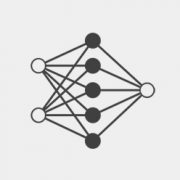To improve lives by innovating, building, and making AI models accessible for meaningful impact at scale.
Scalable systems have the power to transform lives. We aim to drive meaningful change through AI-driven solutions and establish ourselves as a global leader in AI for social impact.
Effective solutions start with a systematic, long-term commitment to use AI for good. This involves working closely with partner organizations to create a conducive environment for defining problem areas, and developing and implementing solutions – a process we define as ‘AI-readiness’.
This refers to a partner organization’s ability to create and use AI solutions to achieve certain benefits.
Ability: The capacity to engage in AI problem definition and to support AI solutions sustainably.
Create: Once a specific problem is defined, the actions (including technologies and methods) that may be used to build AI solutions.
Use: Activities involved in effective application of the solutions
Benefits: Anticipated benefits at the beginning of the project should match benefits accrued once it is implemented. It includes course correction and actions to modify a partner’s Ability.

We have identified the key filters to measure the AI-readiness of an organisation or a specific project.
For our partners, AI-readiness provides a link between long-term activities to be performed at the organization-level and precise benefits accruing from the implementation of AI in specific projects.

© 2025 Wadhwani AI
ROLES AND RESPONSIBILITIES
An ML Engineer at Wadhwani AI will be responsible for building robust machine learning solutions to problems of societal importance; usually under the guidance of senior ML scientists, and in collaboration with dedicated software engineers. To our partners, a Wadhwani AI solution is generally a decision making tool that requires some piece of data to engage. It will be your responsibility to ensure that the information provided using that piece of data is sound. This not only requires robust learned models, but pipelines over which those models can be built, tweaked, tested, and monitored. The following subsections provide details from the perspective of solution design:
Early stage of proof of concept (PoC)
Late PoC
This is early to mid-stage of AI product development
Post PoC
Responsibilities during production deployment
We realize this list is broad and extensive. While the ideal candidate has some exposure to each of these topics, we also envision great candidates being experts at some subset. If either of those cases happens to be you, please apply.
DESIRED QUALIFICATIONS
Master’s degree or above in a STEM field. Several years of experience getting their hands dirty applying their craft.
Programming

ROLES AND RESPONSIBILITIES
As an ML Scientist at Wadhwani AI, you will be responsible for building robust machine learning solutions to problems of societal importance, usually under the guidance of senior ML scientists. You will participate in translating a problem in the social sector to a well-defined AI problem, in the development and execution of algorithms and solutions to the problem, in the successful and scaled deployment of the AI solution, and in defining appropriate metrics to evaluate the effectiveness of the deployed solution.
In order to apply machine learning for social good, you will need to understand user challenges and their context, curate and transform data, train and validate models, run simulations, and broadly derive insights from data. In doing so, you will work in cross-functional teams spanning ML modeling, engineering, product, and domain experts. You will also interface with social sector organizations as appropriate.
REQUIREMENTS
Associate ML scientists will have a strong academic background in a quantitative field (see below) at the Bachelor’s or Master’s level, with project experience in applied machine learning. They will possess demonstrable skills in coding, data mining and analysis, and building and implementing ML or statistical models. Where needed, they will have to learn and adapt to the requirements imposed by real-life, scaled deployments.
Candidates should have excellent communication skills and a willingness to adapt to the challenges of doing applied work for social good.
DESIRED QUALIFICATIONS
